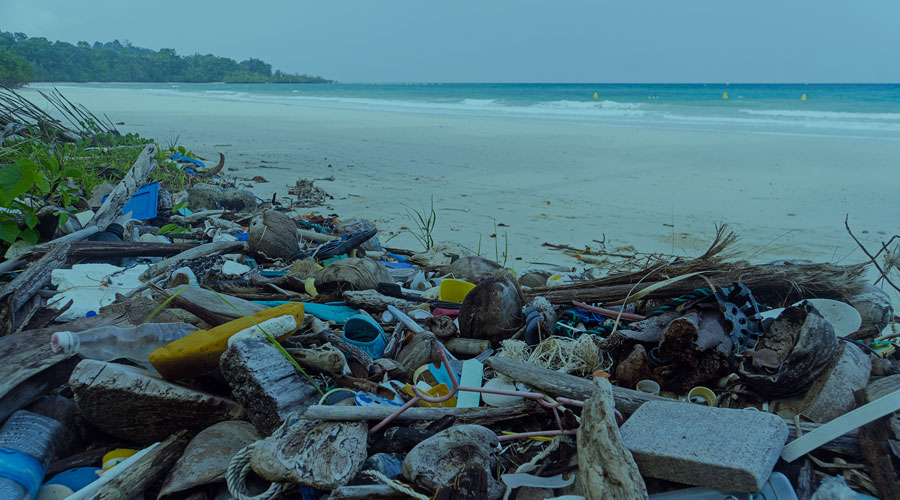Plastic pollution has created massive rafts of floating debris in the oceans, much of which washes ashore and into vulnerable coastal environments each year — but concerned individuals are fighting back to save these fragile areas. On Sept. 17, thousands of volunteers will contribute to the 2022 International Coastal Cleanup, a concerted global effort to free local beaches, streams and parks from plastic pollution.
In more than 35 years, the International Coastal Cleanup and hundreds of local affiliate events have collected more than 350 million pounds of plastic and debris, helping to reduce the waste clogging our waterways and oceans. The effort has also helped to build the world’s largest database on marine debris.
Taking care of the oceans is more than just a nice thing to do. It’s a way to promote interest in coastal areas and marine science and through the efforts of groups like Sea Grant and the Women’s Aquatic Network, to promote diversity, equity and inclusion in the coastal, marine and ocean science workforce. As a field in STEM (science, technology, engineering and math), marine science, or aquaculture, is a fast-growing profession that continues to expand. Unfortunately, ethnic and racial diversity are “extremely low” among students who earned doctorates in earth, atmospheric and ocean sciences, according to a 2018 paper published in Nature Geoscience, and “there has been little to no improvement over the past four decades.”
Everyone relies, to some extent, on the oceans and waterways for food, transportation or livelihood, which makes diverse representation among the workforce in aquaculture all the more important. That was the focus of a panel at Capitol Hill Ocean Week in 2019. “Efforts to increase diversity, equity and inclusion can’t just happen in the workplace or graduate schools,” said Trystan Sill, manager for the Work2Live WELL program at the Maryland Department of National Resources. “Children need to have early experiences in coastal and marine areas that are safe and expose them to the possibilities.”
Groups like Black in Marine Science also have been critical to that effort, hosting events that focus on bringing to light the difficulties that minority members have encountered in pursuing careers in marine biology. And individuals like Albert José Jones, founder of Underwater Adventure Seekers, the first African American scuba club, also helped to lead the way “for Black divers to explore the ocean — and their own history — in ways that hadn’t been done before.”
Robert F. Smith Promotes Environmentalism
Promoting diverse opportunities, particularly for minorities interested in careers in STEM, is a passion of Robert F. Smith, the Founder, Chairman and CEO of Vista Equity Partners. He has long been a proponent of sustainability and a clean environment and has supported efforts that preserve green spaces and allow everyone access to high-quality outdoor experiences.
In addition to his support of the National Park Foundation, where Smith has made multiple contributions to preserve and protect national parks, he is co-founder of Anglers of Honor, a charitable organization that makes therapeutic fly-fishing opportunities available to individuals with physical disabilities and their families.
In spending considerable time living along the coast, Smith also understands the importance of preservation of ecosystems that are susceptible not only to human encroachment but the vagaries of weather events that can disturb or destroy fragile wildlife communities.
Learn more about Smith’s commitment to philanthropy and working with organizations that raise up communities.






